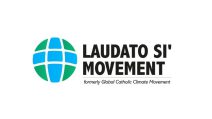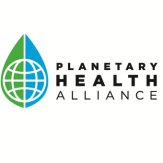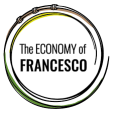The National Altmühltal-Agenda 21 Project, Francis of Assisi Academy and Catholic University, Bavaria
European Nature Conservation Year (ENCY 95) provided the starting point for the Altmühltal project in the diocese of Eichstatt in Bavaria. This project, was a example of the Churches' new ecological concerns, was selected as a national project in 1995 by the German National Organising Committee for ENCY 95, under the patronage of the President of the Federal Republic, Mr Roman Herzog. It has, accordingly, been supported by the Federal Foundation for the Environment from 1995-1999.
Promoting sustainable development the project comprises 25 different sub-projects and aims to implement the international programme Agenda 21,the climate and biodiversity convention adopted at the Rio Conference and the Study Sustainable Germany (Miserior). The focus was promoting sustainable lifestyles and sustainable development at local and regional levels (local Agenda 21).
The Francis of Assisi Academy for the Protection of the Earth, which runs the project, is an ecumenical organisation working at European level, founded by members of the Catholic University of Eichstätt as a specifically Christian contribution to ENCY 95.
The co-ordination team was made up of young Christians, including 30 students from the university. It has a particularly wide range of partners, including the Council of the Diocese of Eichstätt, the Association of University Students, the Information Centre of the Altmühltal Nature Reserve (County of Eichstätt), the Bavarian Branch of the Naturschutz (BUND-Friends of the Earth) organisation, the Catholic Organisation for Women, Catholic Rural Youth, Kolping Youth and other local organisations. The participation of so many Christian organisations makes the project one of the largest environmental projects supported by the Churches in Europe. There over ten partners, each of whom was responsible for one aspect of the project (sustainable agriculture, protecting the climate, the university of tomorrow, sustainable tourism, environmental education, nature protection in quarries and in the parishes of the diocese). At a practical level, a general assessment of the state of the environment has been made (with the help of a hundred or so parishes) and a wide-ranging environmental training programme with more than 50 separate activities has been carried out.
20 years later we can see strong longterm impacts on the Ecumenical Movement, Sustainable Education, Local Agenda 21 / Sustainable Cities (State of Bavaria), Environment and Sustainability Management in the Roman Catholic Church and the Catholic University of Eichstätt.
Council of Europe-Naturopa-Altmühltal-Pr[...]
PDF-Dokument [15.5 MB]
Project Sustainable Dioceses of Eichstätt (1995-present)
The Diocese of Eichstatt was a pioneer for church environmental responsibility and management starting 1994 with the foundation of the Environment Comitte at the Diocese Council which had a catalyst function. From 1995-1999 the Diocese of Eichstatt implemented the Sustainable Diocese project (Part project of the Altmühtal Agenda 21) involving over 100 parihes. In 2001 the Environmental Guidelines of the Diocese of Eichstatt were adopted, inculding a Day of Creation and a Environment Management Project (with 10 institutions) was set up. The Holy Cross Parish in Neumarkt was the first catholic parish in Germany and Europe which was certified via EMAS II.
This effort has been carried further by the development of Integrated Climate Protection Concept for the diocese of Eichstätt in 2011. With this concept, the diocese Eichstätt has to develop reliable data and the possibility on this basis, CO2 reduction targets. Gregor Maria Hanke has set 2020 25% and in 2030 to reduce 50% of CO2 emissions by the year. It was decided to implement a comprehensive set of measures. In 2020
Sustainability and Environment Diocese Eichstätt, Link (german)
In 2001 the Environmental Guidelines of the Diocese of Eichstatt were adopted, inculding a Day of Creation and a Environment Management Project (with 10 institutions) was set up. The Holy Cross Parish in Neumarkt was the first catholic parish in Germany and Europe which was certified via EMAS II.
Environment Guideline Diocese of Eichstä[...]
PDF-Dokument [229.4 KB]
Monastry of Plankstetten (Diocese of Eichstätt)
In the diocese, there are other strong initiatives such as the Plankstetten monastery, which has also changed its ecological course since the 1990s.
Care for Creation - Plankstetten Abbey.p[...]
PDF-Dokument [546.5 KB]








